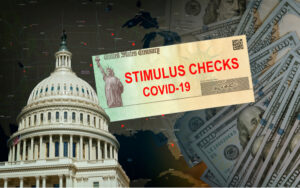
The overwhelming majority of the people on Social Security disability qualify for stimulus payments. You may be wondering: Will the government stimulus check affect my Social Security disability benefits? The short answer is “no”— however, SSI recipients should spend the payment within 12 months. In this article, our Social Security disability attorney Harold W. Conick & Associates Ltd., provides a more comprehensive explanation of how stimulus checks will affect your SSI benefits and SSDI benefits.
Supplemental Security Income (SSI) and Stimulus Payments
Supplemental Security Income (SSI) is a means-tested federal disability insurance program. Operated by the Social Security Administration (SSA), SSI has very strict eligibility requirements. To qualify for SSI, an applicant must have both limited income and limited financial resources. In its Coronavirus Disease (COVID-19) information page, the SSA is clear: Government stimulus payments will not be counted as income for SSI purposes.
In addition, the federal agency will exclude all stimulus payments from its count of an applicant’s “financial resources” for at least 12 months. In other words, if you spend your stimulus payment within 12 months of receiving it, the income will not adversely affect your SSI eligibility in any manner. After 12 months, any remaining stimulus money will be counted as a “financial resource” similar to any cash holdings.
Social Security Disability Insurance (SSDI) and Stimulus Payments
Social Security Disability Insurance (SSDI) is a federal disability program funded through payroll tax contributions. Unlike SSI, not everyone is covered by SSDI. You must have a long enough work history—meaning you paid into the system—in order to be insured by SSDI. A consequence of this is that the financial requirements for SSDI eligibility are not as strict as the financial requirements for SSI eligibility.
Your government stimulus checks will not count as reportable income for the purposes of SSDI eligibility. Further, as SSDI does not have the same financial resource standards, you can save all of your stimulus checks without any concern that it will undermine the amount of Social Security disability income you qualify for going forward.
Call Our Greater Chicagoland Metropolitan Area Social Security Disability Lawyer for Immediate Legal Help
At Harold W. Conick & Associates Ltd., our Greater Chicagoland Metropolitan Area Social Security disability lawyers are passionate, effective advocates for our clients. We work hard to help disabled individuals and their families access financial security. If you have any specific questions about your financial eligibility for SSDI benefits, we can help. Contact us now for a free initial consultation. We serve communities throughout the Greater Chicagoland Metropolitan Area.